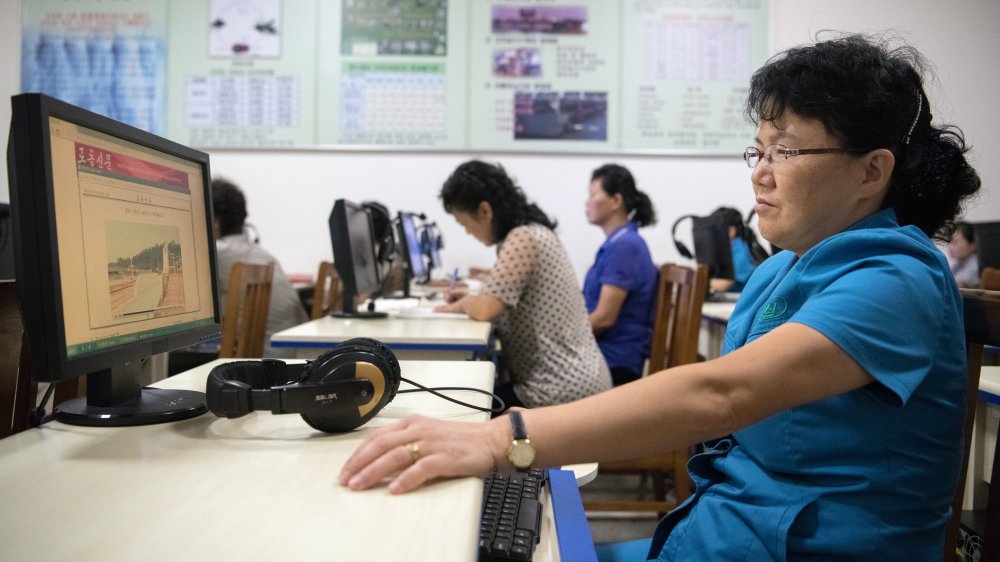The Truth About North Korean Internet
If the average North Korean had access to the full internet, they'd be shocked to find that the rest of the world is a lot different than their home country. But of course that is exactly why most of them can't go online.
In fact, computers are extremely restricted in North Korea. To own one, you must have a government issued permit, since they're apparently just as dangerous as firearms. Personal ownership of fax machines is outright banned, not that a "Help Me" fax would get anywhere these days. So the vast majority of North Koreans have no access to computers, much less the internet.
According to Vox, most North Korean computers exist in government offices, universities, and a few cyber cafes. They're made by the government run company Morning Panda, which has an absurdly cute name despite being run by a fascist state. However, these computers don't actually hook up to the internet at all. Instead, they're linked to the country's intranet, Kwangmyong. In contrast to the globally connected internet, intranets are local and restricted.
So, a few city-dwellers are able to dial up to Kwangmyong for email and a handful of websites (which look like they're straight out of 1994). But of course, the rules don't apply to the elite of North Korea.
What North Korea really uses the internet for
About a few thousand high ranking government officials in North Korea have free range of the internet. They use it for pretty standard things: downloading movies, online shopping, and hacking Britain's health care system. Yup, according to the Washington Post, North Korea's WannaCry cyberattack wreaked havoc on thousands of computers and succeeded in shutting down the British health care system for multiple days.
Of course, that wasn't the only time North Korea got a little hacker happy. In 2014, they showed their prowess by hacking Sony Pictures Entertainment and acquiring a slew of information, including Social Security numbers, emails, and a few films that hadn't yet hit theaters. According to PBS, U.S. officials believe the attack was spurred on by the film "The Interview," which featured an assassination plot against Kim Jong Un, the North Korean leader.
Recently, the New York Times reported that North Korea's internet use has increased about 300 percent since 2017. Their new favorite internet activity is stealing and mining cryptocurrencies to wiggle their way around American sanctions.
However, between all the hacking and financial finagling, North Korea also likes to promote itself via propaganda. The country runs a few of its own websites, which feature things like the "Supreme Leader's Activities" (spoiler alert: Kim Jong Un visited a fruit farm), Korean recipes, and North Korean films. In the future, let's hope for more fruit farms and fewer large scale cyber attacks.

